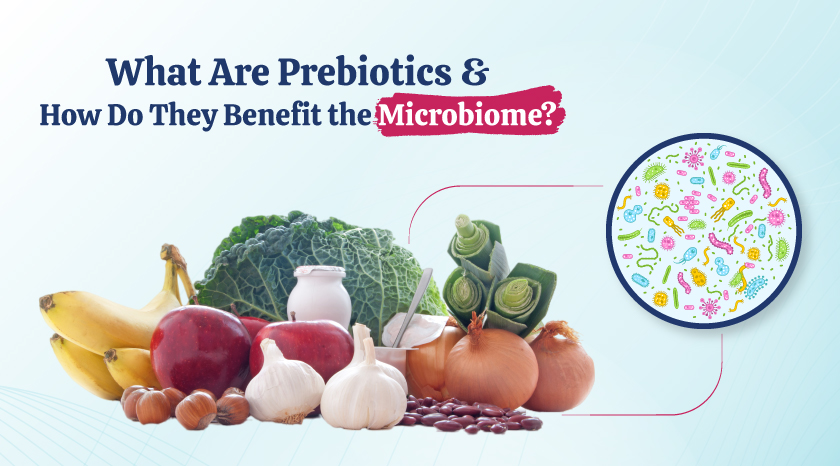In the quest for better health, much attention has been given to probiotics—the beneficial bacteria that inhabit our gut and confer numerous health benefits. However, an equally important but sometimes overlooked component of gut health is prebiotics. These are non-digestible fibers that feed the beneficial bacteria in our intestines. Let’s explore what prebiotics are and how they benefit the microbiome.
What Are Prebiotics?
Prebiotics are a type of dietary fiber that the human body cannot digest. Unlike other fibers, prebiotics serve as food for probiotics, the beneficial bacteria that reside in the gut. When consumed, prebiotics pass through the upper part of the gastrointestinal tract undigested and reach the colon, where they are fermented by the gut microbiota.
Common sources of prebiotics include:
- Inulin: Found in chicory root, garlic, onions, leeks, and asparagus.
- Fructooligosaccharides (FOS): Present in foods like bananas, honey, and onions.
- Galactooligosaccharides (GOS): Found in dairy products and certain root vegetables.
- Resistant Starch: Found in legumes, unripe bananas, and cooked and cooled potatoes and rice.
How Do Prebiotics Benefit the Microbiome?
- Promote the Growth of Beneficial Bacteria:
- Prebiotics serve as a food source for probiotics. By feeding these beneficial bacteria, prebiotics help maintain and increase their population in the gut. A higher number of good bacteria can outcompete harmful bacteria, promoting a healthier gut environment.
- Improve Digestive Health:
- The fermentation of prebiotics by gut bacteria produces short-chain fatty acids (SCFAs) such as butyrate, propionate, and acetate. SCFAs play a crucial role in maintaining the health of the colon by serving as an energy source for colon cells, reducing inflammation, and improving gut barrier function.
- Enhance Immune Function:
- A healthy gut microbiome supports the immune system by preventing the growth of pathogenic bacteria and promoting the production of antimicrobial compounds. Prebiotics help maintain this balance, thus enhancing the body’s natural defense mechanisms.
- Support Metabolic Health:
- By influencing the composition of the gut microbiota, prebiotics can affect metabolic processes. Studies have shown that prebiotics can improve insulin sensitivity, regulate blood sugar levels, and even aid in weight management by promoting feelings of fullness and reducing appetite.
- Mental Health Benefits:
- Emerging research suggests a strong connection between gut health and mental well-being, often referred to as the gut-brain axis. Prebiotics can support this connection by fostering a healthy gut environment, which can influence mood, anxiety, and cognitive function.
Incorporating Prebiotics into Your Diet
Adding prebiotic-rich foods to your diet is a simple way to support your gut health. Here are some practical tips:
- Eat a Variety of Fruits and Vegetables: Aim to include a diverse range of prebiotic-rich fruits and vegetables in your daily meals. Foods like garlic, onions, leeks, asparagus, and bananas are excellent sources.
- Include Whole Grains: Whole grains such as oats, barley, and wheat are rich in prebiotic fibers.
- Try Legumes and Pulses: Beans, lentils, and chickpeas are not only high in protein but also packed with prebiotics.
- Experiment with Resistant Starch: Incorporate foods like cooked and cooled potatoes, rice, and green bananas into your diet.
By understanding the importance of prebiotics and making conscious dietary choices, you can support a healthy microbiome and improve your overall health.
A healthy gut can prevent various digestive issues, reduce inflammation, and even enhance mental well-being. Incorporating probiotics into your daily routine can help restore and maintain this balance, particularly when faced with dietary changes, stress, or illness. BIOM 3-in-1 Probiotics are an excellent choice for comprehensive gut health support, combining prebiotics, probiotics, and postbiotics in one powerful formula. This unique blend not only replenishes beneficial bacteria but also nurtures and sustains their growth, ensuring optimal gut health and overall wellness.





